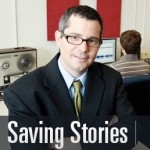
The Louie B. Nunn Center for Oral History at the University of Kentucky is internationally recognized for its outstanding collection of nearly 8,000 oral history interviews. The number of interviews available online continues to grow, providing greater access to the collection. Many interviews are transcribed and most are subject-indexed. The Louie B. Nunn Center for Oral History is currently developing the Online Oral History Projects Initiative, to offer searchable, full text transcripts on the Kentuckiana Digital Library syncing text form the transcripts to the corresponding audio and video.
Begun in 1973, the Program preserves the history of Kentucky and of the University by means of oral history interviews. Listen to “Voices from the Collection,” an audio introduction to the Nunn Center.
The Program concentrates on twentieth century Kentucky history with an emphasis on political history, Appalachia, Kentucky writers, and agriculture. Other topics include black history, University of Kentucky history, the history of broadcasting, the history of sports, Kentucky medical history, World War II and Vietnam. Follow the links to learn more about our current project: From Combat to Kentucky, William B. Keightley Oral History Project, the Horse Industry in Kentucky, Kentucky Legislature, The East End Lexington. The Louie B. Nunn Center for Oral History offers support to groups in Kentucky interested in conducting oral history research. Such groups have included Big South Fork Folklife Study, Blue Grass Trust, Fayette County Medical Society, Frontier Nursing Service, Kentucky Interscholastic Athletics Association, Lexington-Fayette Co. Historic Commission, Lexington Urban League, and Wilderness Road Girl Scout Council.
The oral history staff offers individuals oral history instruction or group workshops when requested. the UK Program serves as a consultant for non-University projects and also as a repository for the resulting interviews. For questions, contact the Nunn Center director, Doug Boyd.
Follow Current Nunn Center activities on Twitter, Facebook, check out the Nunn Center blog “Saving Stories,” listen to the Podcast or subscribe to the Nunn Center YouTube Channel.